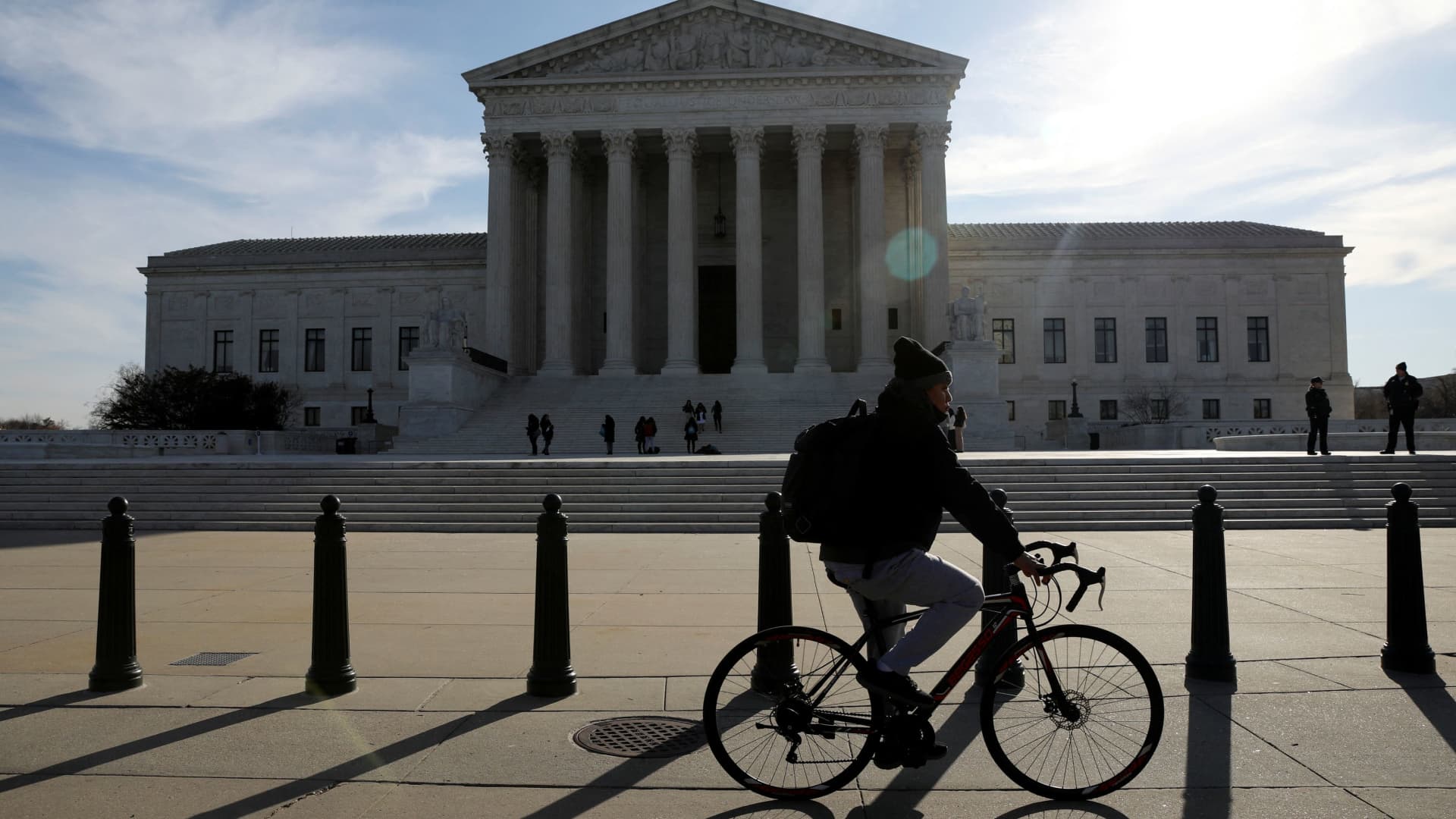Supreme Court rules Congress can deny federal disability benefits to residents of Puerto Rico
The U.S. Supreme Court ruled that Congress is not required to extend a federal disability benefits program to residents of Puerto Rico.

A cyclist rides in front of the U.S. Supreme Court building in Washington, March 15, 2022.
Emily Elconin | Reuters
The U.S. Supreme Court ruled Thursday that Congress is not required to extend a federal disability benefits program to residents of Puerto Rico.
The court ruled 8-1 that because Congress treats Puerto Rico residents differently from those residing in the states when it comes to tax laws, it can do the same when it comes to the Supplemental Income Security, or SSI, benefits program.
Justice Sonia Sotomayor, one of the court's three liberals whose family stems from Puerto Rico, dissented.
SSI benefits are meant to offer regular financial assistance for disabled and elderly people in need. The program is available to people living in the 50 U.S. states, but not to those living in some U.S. territories.
The question before the high court centered on whether the Due Process clause of the Fifth Amendment to the U.S. Constitution required Congress to extend SSI benefits to Puerto Rico.
A lower appeals court had ruled that the exclusion of SSI benefits to the territory was unconstitutional. The Department of Justice argued before the Supreme Court last year that that appellate ruling should be reversed.
Justice Brett Kavanaugh wrote in the majority opinion that "Congress has long maintained federal tax and benefits programs for residents of Puerto Rico and the other Territories that differ in some respects from the federal tax and benefits programs for residents of the 50 States."
Kavanaugh noted that Puerto Rico residents are mostly exempt from federal income, estate and excise taxes, among others. They do pay other federal taxes, such as Social Security, Medicare and unemployment taxes, and they are eligible for the benefits programs that those taxes fund.
"But just as not every federal tax extends to residents of Puerto Rico, so too not every federal benefits program extends to residents of Puerto Rico," Kavanaugh wrote.
This is breaking news. Please check back for updates.

 JaneWalter
JaneWalter 
































